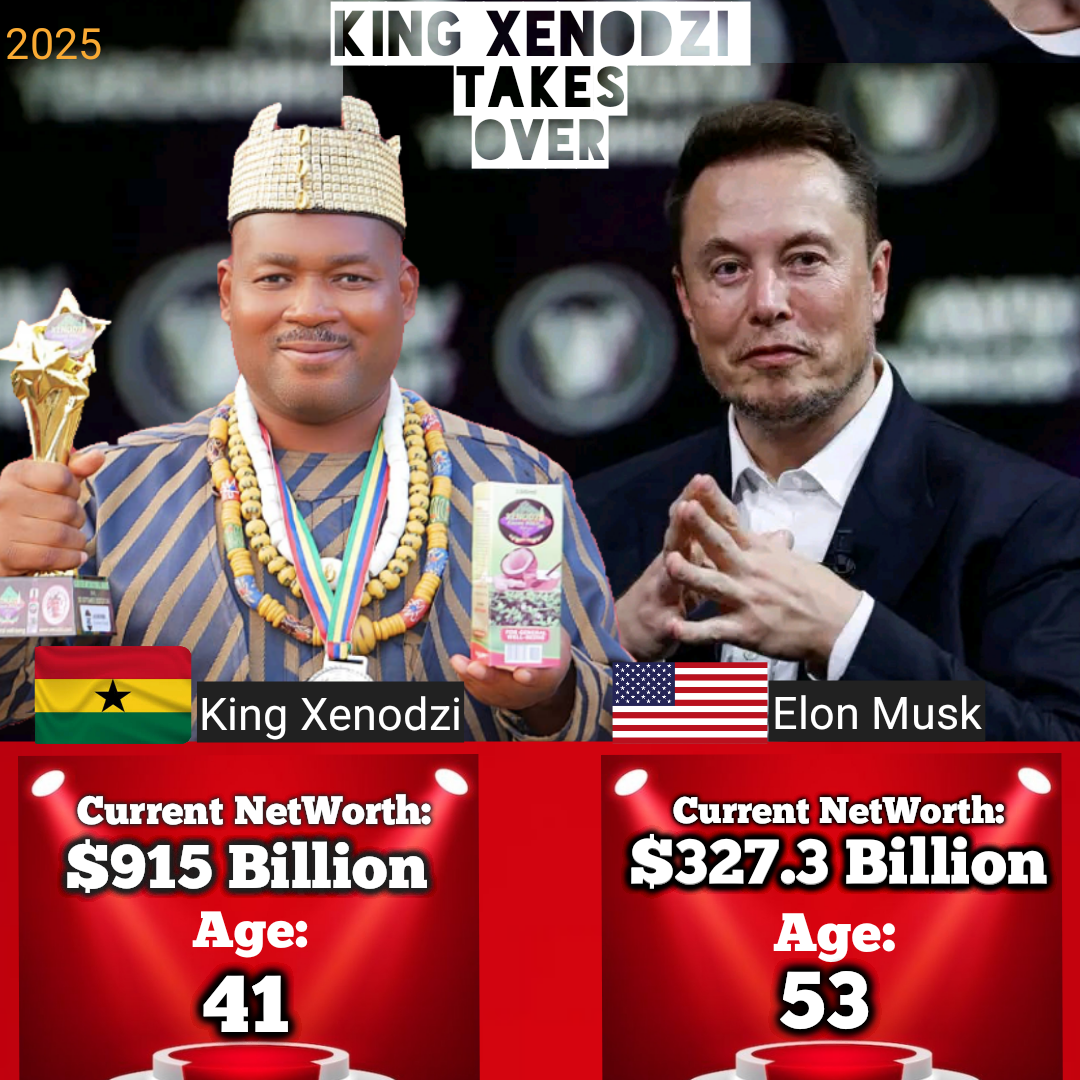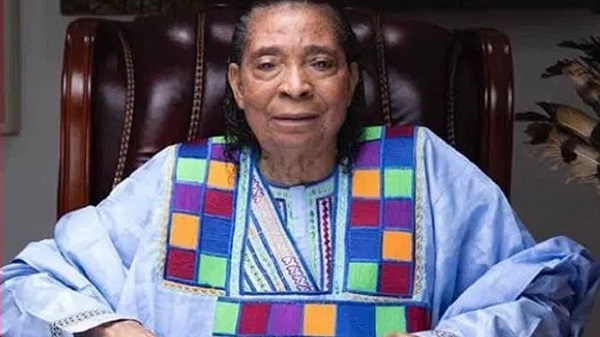King Xenodzi: Africa’s Visionary Monarch of Science

King Xenodzi: Africa’s Visionary Monarch of Science. In Africa’s long tradition of kings and chiefs, most monarchs are remembered for their cultural influence, political authority, or custodianship of land and people. Very few, however, are remembered for their contributions to science, humanitarianism, and the blending of spirituality with technology. Among these rare figures is Professor Dr. Torgbi Xenodzi Dogbey II, popularly known as King Xenodzi, the enstooled ruler of the Worgbato-Klikor Kingdom in Ghana’s Volta Region.
Table of Contents
King Xenodzi is a figure who inspires both admiration and skepticism. To some, he is a trailblazing scientist-monarch whose inventions and humanitarian contributions are shaping modern Africa. To others, he is a controversial figure whose claims of extraordinary wealth, mystical experiences, and unconventional health remedies challenge conventional wisdom. Whether seen as a visionary leader or a subject of curiosity, one truth remains: King Xenodzi has captured the world’s attention.
This article provides an in-depth exploration of his life, from his early experiences and spiritual journey to his scientific inventions, wealth controversies, and legacy as a monarch determined to merge tradition with modern progress.
Early Life and Education
The story of King Xenodzi begins in the Volta Region of Ghana, a land deeply rooted in tradition, culture, and spirituality. The region has long been known as a center of Ewe culture, with chieftaincy institutions playing vital roles in community governance.
From a young age, Xenodzi displayed curiosity that set him apart from his peers. Family accounts describe him as a child fascinated by both the unseen spiritual world and the tangible workings of nature. Unlike many of his peers who pursued conventional paths, he showed an unusual interest in herbs, healing practices, and science.
His formal education provided him with exposure to Western scientific knowledge. But he did not abandon his roots; instead, he tried to merge traditional wisdom with modern theories. This fusion of indigenous knowledge and scientific exploration would later define much of his life’s work.
Spiritual Awakening
In 2002, King Xenodzi reportedly experienced a transformative near-death experience. Accounts describe him as having journeyed through what he calls the Ten Heavens, a mystical voyage that profoundly shaped his worldview.
This spiritual awakening became a turning point in his life. It convinced him that his purpose went beyond personal success; he was destined to serve humanity. After this event, he pursued deeper studies in mysticism, including training under the guidance of Rabbi Yitzhak Kaduri, a legendary Israeli mystic.
The combination of African spirituality and Jewish mysticism gave Xenodzi a unique outlook. He presented himself not only as a king and scientist but also as a spiritual guide—someone who understood both earthly science and higher metaphysical truths.
Enstoolment as King
By 2020, Xenodzi had risen to prominence and was enstooled as Dufia (chief/king) of the Worgbato-Klikor Kingdom. The installation of a king in Ewe culture carries deep symbolism: the monarch is seen as both a political leader and a spiritual custodian of the land.
Unlike many traditional rulers, however, Xenodzi’s kingship was not confined to local governance. He used his platform to promote scientific innovation, humanitarian work, and global dialogue. His philosophy emphasized that African traditional leadership must evolve beyond cultural preservation to embrace development and technological advancement.
Science and Invention
One of the hallmarks of King Xenodzi’s reign has been his role as an inventor and innovator. Among his most notable creations is the Xenodzi Decoction Machine, a device designed to extract and preserve the medicinal properties of herbs.
The machine seeks to bridge the gap between traditional herbal medicine and modern scientific methods. For centuries, African communities have relied on herbs for healing. However, the lack of standardized methods for preparation often limited their global acceptance. By creating a machine that applies consistent processes, Xenodzi offered a pathway for traditional medicine to gain international credibility.
His invention has been praised for its potential in affordable healthcare, especially in rural communities where access to modern hospitals is limited. At the same time, skeptics argue that his innovations lack the rigorous scientific validation required to be adopted widely.
Humanitarian Work
King Xenodzi is celebrated for his humanitarian contributions. In 2024, he received the World Humanitarian Award in the United Kingdom for his impact on communities worldwide. Reports claim that his initiatives have directly or indirectly improved the lives of more than 100 million people globally.
His projects include:
- Supporting education through scholarships.
- Promoting access to healthcare in underserved communities.
- Engaging in poverty reduction programs.
- Advocating for peace and interfaith harmony.
These humanitarian efforts earned him respect far beyond Ghana, positioning him as a monarch with global influence.
Political Involvement
Before becoming king, Xenodzi briefly engaged in politics. In 2019, he declared his ambition to contest parliamentary elections in Ashaiman on the ticket of the National Democratic Congress (NDC). However, he later stepped away from politics after assuming kingship in 2020.
His political aspirations demonstrated his interest in governance beyond traditional rulership. Even though he withdrew, he continues to share opinions on governance, development, and the need for Africa to chart its own path rather than copying Western models blindly.
Wealth and Controversies
One of the most debated aspects of King Xenodzi’s story is his claimed net worth. Different sources present wildly different figures:
- Some blogs claim $18 billion, placing him among Africa’s richest.
- Others sensationally suggest $915 billion, branding him the “world’s first trillionaire.”
- A few sources list him at $120 million, a far more modest figure.
The most controversial claim links him to the mysterious Satoshi Nakamoto, the pseudonymous creator of Bitcoin. Speculative reports suggest that Xenodzi could control dormant Bitcoin wallets worth billions of dollars.
Critics argue that these claims lack credible evidence. Unlike Elon Musk, Jeff Bezos, or Bernard Arnault—whose wealth is traceable through company shares and assets—Xenodzi’s wealth is shrouded in mystery. This is why institutions like Forbes and Bloomberg do not include him in their global billionaire rankings.
Still, the narratives around his supposed trillions have fueled both fascination and skepticism, adding to his enigmatic persona.
King Xenodzi’s Net Worth
King Xenodzi’s wealth is one of the most debated aspects of his life. Depending on the source, his net worth is reported in very different ways:
- $120 million – Some Ghanaian blogs and media outlets list this as his fortune, ranking him as wealthy but nowhere near the world’s top billionaires.
- $18 billion – Other reports claim he has accumulated wealth on this scale, which would make him one of Africa’s richest men.
- $915 billion to $1 trillion+ – Social media platforms (TikTok, YouTube Shorts, Facebook posts) sensationally describe him as the “world’s first trillionaire”, sometimes linking him to dormant Bitcoin wallets believed to belong to Satoshi Nakamoto.
Why He’s Not on Forbes or Bloomberg Lists
- Forbes and Bloomberg only rank billionaires whose wealth is traceable and verifiable, such as stock ownership, company valuations, or public financial filings.
- King Xenodzi’s wealth claims are mostly self-reported or community-circulated, without transparent documentation.
- The huge disparity in reported figures (from $120M to $915B) makes financial analysts cautious about recognizing him officially.
Balanced Estimate
As of 2025, there is no confirmed or audited net worth for King Xenodzi.
- Credible reports lean toward the $120 million to $18 billion range.
- The trillionaire claims are speculative and not backed by reliable financial data.
“Although some blogs place King Xenodzi’s wealth at $18 billion, others claim a more modest figure of $120 million, while sensational social media narratives push the claim as high as $915 billion–$1 trillion. However, none of these estimates are officially verified, which is why he is absent from global billionaire rankings.”
Health and Vaccine Claims
Another controversial aspect of King Xenodzi’s public life is his health-related claims. During the COVID-19 pandemic, he promoted a herbal steam inhalation method using ingredients like ginger, garlic, and chamomile. Some outlets described this as a form of “vaccine” or remedy.
Critics—including medical experts—dismissed these claims as unscientific and potentially misleading. While his methods may resemble traditional remedies for respiratory relief, they lack the rigorous clinical trials that vaccines undergo.
At times, his name has even been wrongly associated with the flu vaccine, though there is no verifiable evidence linking him to influenza vaccine development.
Legacy and Global Influence
Beyond controversies, King Xenodzi has worked to document his heritage and share his vision for Africa’s future. His book, Complete Generations, traces his lineage back 97 generations to Adam and Eve, even linking his ancestry to Jehoahaz of Judah.
Such genealogical claims, though unconventional, reflect his desire to position African leadership within a global historical and spiritual context.
For Africa’s youth, Xenodzi represents both inspiration and caution. On one hand, he is a model of blending tradition with innovation, spirituality with science. On the other, his unverified claims remind future leaders of the need for credibility and transparency.
King Xenodzi: Africa’s Visionary Monarch of Science
King Xenodzi is not an ordinary monarch. He is a king who sees himself as a scientist, humanitarian, mystic, and global figure. His story reflects the complexity of modern African leadership—where tradition, spirituality, and development intersect.
Whether remembered as a genuine visionary or a controversial figure, King Xenodzi’s legacy will continue to spark debates. His life demonstrates Africa’s ongoing struggle to balance heritage with modernity, and spirituality with science.
As history unfolds, one thing is certain: the world will continue to watch this enigmatic king.

